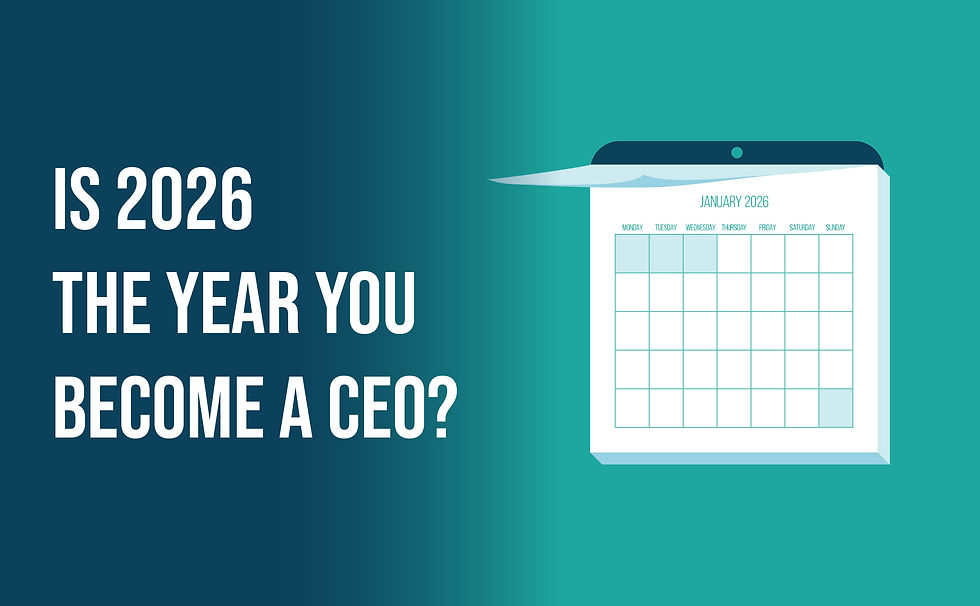How to answer the ‘tell me about yourself’ question in an interview
- Jan 30, 2024
- 3 min read
Updated: May 29, 2025

When you’re interviewing for an executive appointment, one of the first questions the interviewer is likely to ask is: “Can you tell me about yourself?”
The truth is that most people don’t really prepare for the question. Instead, they think they’ll wing it.
But with so much at stake, winging it is definitely the wrong approach, says Executive Interview Coaching founder Richard Elstone. Here, he explains how to answer this important question well and make a lasting impression during the interview process.
Why do you need to prepare?
When an interviewer asks you to tell them about yourself, it’s basically your pitch for the role, says Richard. Whether it’s the recruiter, the chair of the board, the search consultant or the CEO of the organisation, this is your opportunity to show them who you are and win them over.
“The tell me about yourself answer should be one that gives comfort to the interviewer that you are a genuine candidate for the role that you’re going for,” Richard says.
“You don’t get a second chance to make a first impression.”
What to expect
The question could be posed in several different ways. The person interviewing you may say:
Tell me about yourself.
I’ve read your resume. Tell me something that I don’t know.
Why are you here?
Why are you interested in the role?
Essentially, the answer to the question is going to be exactly the same, irrespective of how it is asked.
“The worst thing to say is, ‘where do you want me to start?’,” says Richard.
“You have to be like a politician and prepare your answer.”
How to answer the question
The best way to answer this type of question is to start with a firm statement about who you are. For example:
I’m a highly experienced Chief Financial Officer with 25 years’ experience in the FMCG sector. I’m known to be a person who is highly commercial and has a load of experience in managing and leading a number of acquisitions.
Next, you need to talk about how you got there. A typical timeframe for this is three to five minutes.
“Any longer and you’ll bore the pants off the interviewer,” says Richard. “Any shorter and you really haven’t done yourself justice.”
It’s a good idea to divide your career into logical sections. For instance, it might be 1) how you started your career, 2) how you moved into industry, and 3) how you became an executive. The idea is to keep the story going.
Richard says it’s important not to talk about every single role you’ve had, only the ones that are relevant to the position you’re applying for.
“The other thing I suggest people do is to introduce a couple of characters into the story,” says Richard. “Talk about the important people in your career and the people who have helped you get to where you are today.
“We are basically stone-age people living in a digital age. We’re hard-wired as humans to listen to stories, so make sure that your story is something that is memorable, and you can do that by inserting a couple of characters into the story. Make it interesting.”
Richard says if you get interrupted while you are telling the story and end up going off on a tangent, always come back to the crux of it.
End your answer by explaining why you are interested in the role.
Remember the end goal
Answering the ‘tell me about yourself’ question can be a make or break in the interview. If done well, you will have stated your case and reinforced your appeal as a potential candidate for the role.
“If it’s a compelling story, sometimes the pre-prepared interview questions may get put to one side and the interview becomes more like a business discussion,” says Richard.
“You still need to prepare for the examples you’re going to be using. However, it won’t feel like a Q and A, but rather, a business discussion.”
Richard says if you are called in for subsequent interviews, make sure to keep your answer the same when retelling your story, not doing so, is an easy mistake to make.
Need expert advice?
When you’re going for an executive interview, it’s difficult to prepare for questions like this by yourself. You need to talk it through with an expert.
That’s where we come in. At Executive Interview Coaching, we offer a range of services to help executives to land their next appointment. Let us be your sounding board and help you finetune your answers, so that you can perform at your peak in your next executive interview.



